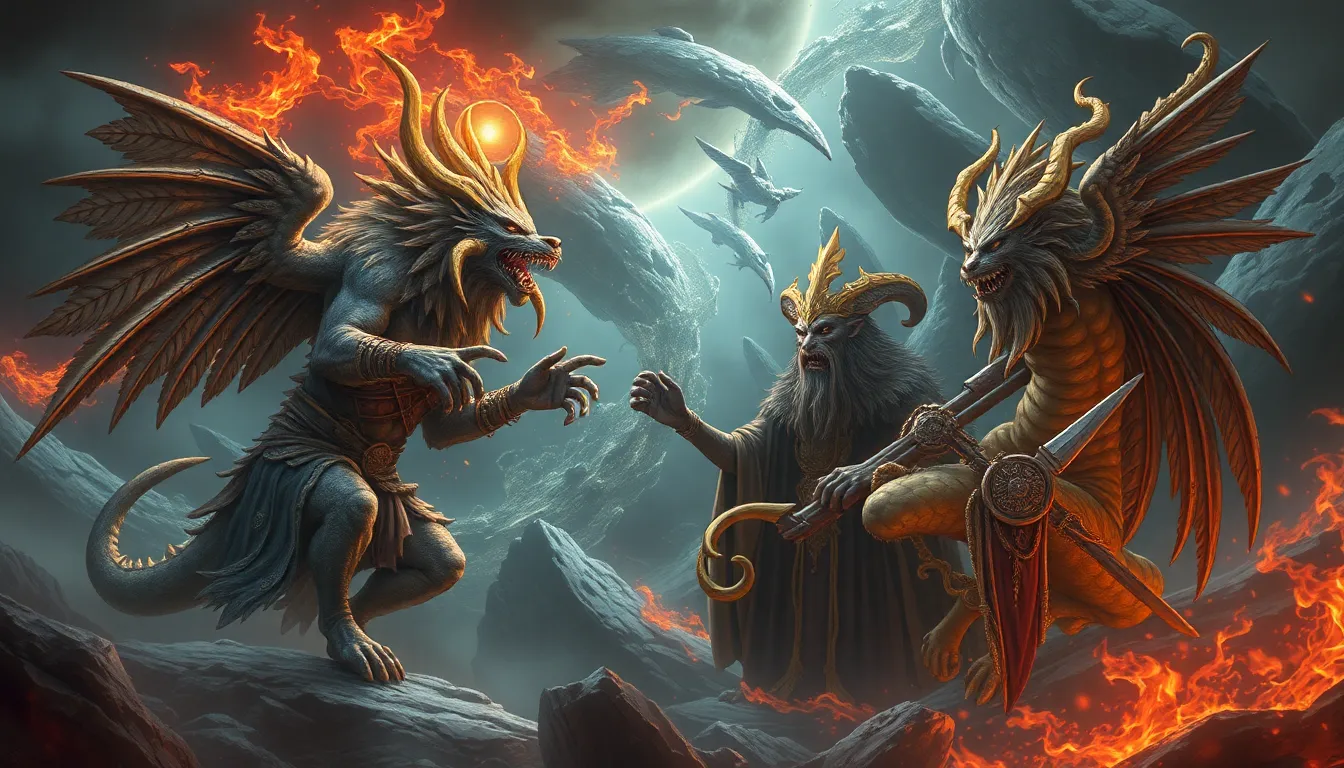Divine Punishments That Will Make You Think Twice About Hubris
I. Introduction
Hubris, often defined as excessive pride or self-confidence, has been a significant theme throughout history, especially in literature and mythology. It represents a dangerous overestimation of one’s capabilities, often leading to disastrous consequences. In various cultures, hubris is frequently met with divine punishment, serving as a cautionary tale for humanity.
This article will explore the concept of hubris and its repercussions through the lens of divine retribution, drawing examples from mythology, religion, modern society, and literature. By examining these narratives, we gain insight into the timeless warning against arrogance and the importance of humility.
II. The Concept of Hubris in Ancient Mythology
A. Definition and characteristics of hubris in mythology
In ancient mythology, hubris is often portrayed as a character flaw that leads individuals to defy the gods or moral law. It is characterized by:
- Overconfidence in one’s abilities
- Disregard for the natural order
- A tendency to provoke the divine
B. Examples of hubris from Greek mythology
Greek mythology is replete with tales of hubris, showcasing the inevitable downfall of those who overestimate their status:
- Icarus and the dangers of overambition: Icarus, ignoring his father Daedalus’ warnings, flew too close to the sun with wings made of wax. His hubris led to his tragic fall when the wax melted, symbolizing the perils of overreaching.
- King Agamemnon’s downfall: Agamemnon, the leader of the Greek forces in the Trojan War, exhibited hubris by sacrificing his daughter to appease the gods. His arrogance and disregard for familial bonds ultimately led to his demise.
III. Biblical Examples of Divine Punishment for Hubris
A. The story of Nebuchadnezzar and his pride
The biblical account of King Nebuchadnezzar in the Book of Daniel highlights the consequences of pride. After boasting about his power and achievements, he was struck with madness, living like a beast until he acknowledged the sovereignty of God. This tale serves as a profound reminder of the dangers of arrogance.
B. The Tower of Babel and the consequences of human arrogance
The story of the Tower of Babel illustrates humanity’s attempt to reach the heavens through their own efforts. God intervened by confusing their languages, scattering them across the earth, showcasing the futility of human pride against divine authority.
C. The fate of King Herod as a warning against pride
In the New Testament, King Herod’s pride led him to accept worship due only to God. As a consequence, he was struck down by an angel of the Lord, dying in humiliation. This narrative serves as a stark warning against hubris and self-deification.
IV. Comparative Analysis: Hubris in Different Religions
A. Hinduism: The cycle of karma and divine retribution
In Hinduism, the concept of karma reflects the belief that actions, particularly those stemming from hubris, lead to consequences in this life or the next. Hubristic behavior invites negative karma, resulting in suffering and a fall from grace.
B. Buddhism: The concept of attachment and its consequences
Buddhism teaches that attachment and ego lead to suffering. Hubris, as a form of attachment to self-importance, creates a cycle of delusion and pain, emphasizing the need for humility and self-awareness.
C. Islam: The stories of past prophets and their lessons on humility
Islamic teachings include numerous stories of prophets who faced the consequences of hubris. The tale of Pharaoh, who defied Moses and claimed divinity, exemplifies the ultimate fall from grace due to arrogance against God.
V. Modern Interpretations of Divine Punishment
A. How contemporary society views hubris and its repercussions
In today’s world, hubris is often seen in various domains, from business to politics. Society tends to view the downfall of arrogant individuals as a form of poetic justice, where their excessive pride leads to public humiliation or failure.
B. Case studies of public figures facing downfall due to arrogance
Numerous public figures have faced ruin due to their hubris:
- Enron executives who misled investors and faced legal consequences.
- Politicians who disregarded public opinion and faced electoral defeat.
C. The role of social media in amplifying hubris and its consequences
Social media platforms can amplify hubris, allowing individuals to showcase their achievements and opinions without humility. This can lead to backlash, as public scrutiny often reveals the consequences of overconfidence.
VI. Psychological Perspectives on Hubris and Consequences
A. The psychology of arrogance and self-awareness
Psychologically, hubris is linked to a lack of self-awareness. Individuals with inflated self-esteem often fail to recognize their limitations, leading to poor decision-making and negative outcomes.
B. Impacts of hubris on personal relationships and professional life
Hubris can strain personal and professional relationships, as arrogant individuals tend to alienate others, leading to isolation and conflict. The inability to empathize undermines collaboration and trust.
C. The role of humility in mitigating hubris
Humility serves as a counterbalance to hubris. By fostering self-reflection and openness to feedback, individuals can avoid the pitfalls of arrogance and cultivate healthier relationships.
VII. Literary Representations of Hubris and Divine Retribution
A. Analysis of classic literature (e.g., “Oedipus Rex” and “Paradise Lost”)
Classic literature often explores themes of hubris and its consequences. In “Oedipus Rex,” Oedipus’ pride leads to his tragic downfall, while in “Paradise Lost,” Satan’s arrogance results in his expulsion from Heaven.
B. Modern literary examples and their portrayals of hubris
Modern literature continues to delve into hubris, with characters whose overconfidence leads to their undoing. These narratives serve to remind readers of the timeless nature of this flaw.
C. Lessons imparted through these narratives
Through these stories, readers learn valuable lessons about the importance of humility and the dangers of pride, reinforcing the idea that hubris can lead to one’s downfall.
VIII. Philosophical Reflections on Hubris and Divine Justice
A. The philosophical underpinnings of justice and punishment
Philosophically, the concepts of justice and punishment are intertwined with the idea of hubris. Many thinkers argue that divine punishment serves to restore balance and order in the universe.
B. Perspectives from major philosophers on the nature of hubris
Philosophers such as Aristotle and Nietzsche have discussed hubris in various contexts, emphasizing its role in human behavior and moral philosophy. They explore the implications of arrogance on ethical decision-making.
C. The moral implications of divine punishment in a secular world
In contemporary society, the idea of divine punishment may seem outdated, yet the moral lessons surrounding hubris remain relevant. Understanding the consequences of arrogance fosters ethical behavior and accountability.
IX. Learning from History: Cautionary Tales of Hubris
A. Historical figures whose hubris led to their downfall
History is filled with cautionary tales of hubris, including:
- Napoleon Bonaparte, whose overconfidence led to his downfall in Russia.
- Richard Nixon, whose arrogance contributed to the Watergate scandal.
B. Lessons learned from past mistakes
These historical examples serve as reminders that hubris can cloud judgment and lead to severe consequences. Learning from these mistakes can help individuals and societies avoid similar pitfalls in the future.




